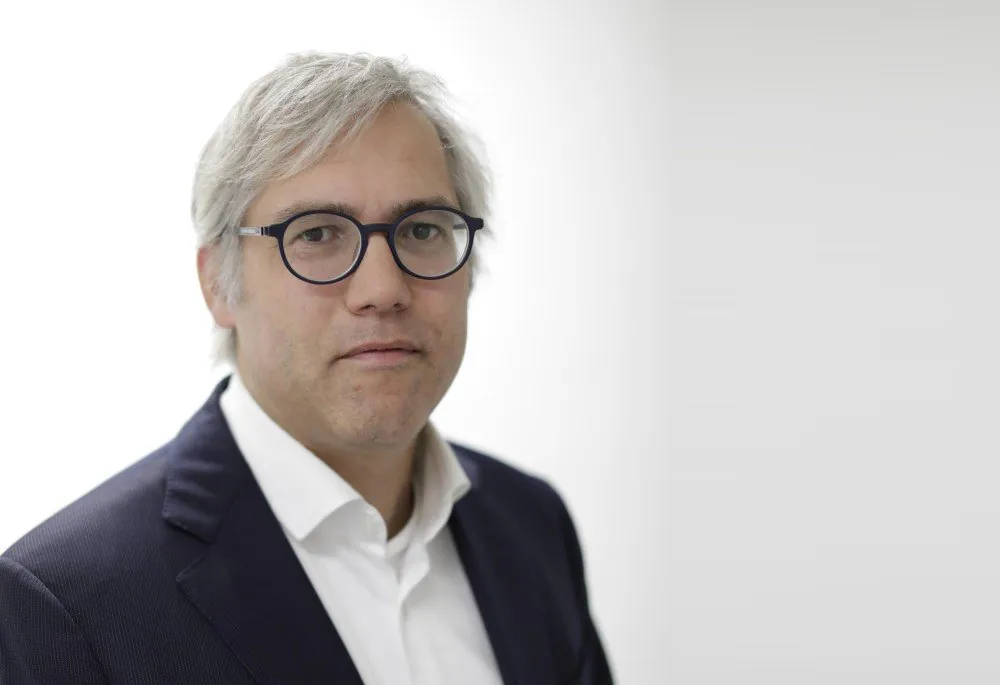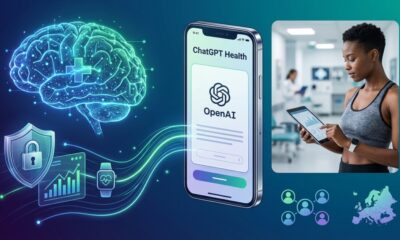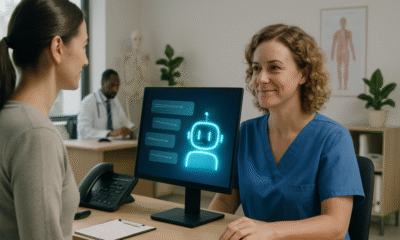Artificial Intelligence
COVID-19 Open AI Consortium – Interview with Principal Investigator Prof. Folkert Asselbergs

The Covid-19 Open AI Consortium (COAI) intends to bring breakthrough medical discoveries and actionable findings to the fight against the Covid-19 pandemic.
COAI aims to increase collaborative research, to accelerate clinical development of effective treatments for Covid-19, and to share all of its findings with the global medical and scientific community. COAI will unite collaborators: academic institutions, researchers, data scientists and industrial partners, to fight the Covid-19 pandemic.
This is the Third of three interviews with principal leaders behind COAI.
Folkert W. Asselbergs is professor of precision medicine in cardiovascular disease at Institute of Cardiovascular Science, UCL, Director NIHR BRC Clinical Research Informatics Unit at UCLH, professor of cardiovascular genetics and consultant cardiologist at the department of Cardiology, University Medical Center Utrecht, and chief scientific officer of the Durrer Center for Cardiovascular Research, Netherlands Heart Institute. Prof Asselbergs published more than 275 scientific papers and obtained funding from leDucq foundation, British and Dutch Heart Foundation, EU (FP7, ERA-CVD, IMI, BBMRI), and RO1 National Institutes of Health.
A percentage of the population that is afflicted with COVID-19 show signs of cardiovascular damage. What type of heart related problems are being seen?
From the studies that have been published thus far, acute cardiac injury is observed in up to 27.8% of patients. In addition, a number of case reports have been published of patients that have developed myocarditis and myocardial infarction in the context of COVID-19. There is also an unexpected high incidence of pulmonary embolisms in this patient population.
Do you believe that we currently have any type of understanding as to why COVID-19 causes this type of heart damage?
Our current understanding is still very limited. The release of troponin in critically ill patients is common, and also frequently seen in other patient groups (trauma/surgical/sepsis etc.). Troponin release is thus a non-specific finding and the mechanisms explaining myocardial injury in COVID-19 are not fully understood.
What type of people do we need to join the COAI project in order to maximize its efficacy?
To maximize the efficacy of this project, I believe we must strive towards a multidisciplinary approach between data scientists, statisticians, epidemiologists and clinicians.
You are currently a Professor of Precision medicine at the Institute of Cardiovascular Science and Institute of Health Informatics at UCL. Can you discuss possible ways precision medicine can be used to target COVID-19 with the current information that we have?
It is still unclear which people develop severe symptoms due to COVID-19. Novel predictive models are needed to identify those patients at high-risk. Those patients should be monitored more intensively and be prioritized for novel treatments.
What information do we need to gather to make precision medicine an effective tool in treating COVID-19 patients?
Easy to obtain routinely collected data is needed to develop a risk calculator to identify those at high-risk such as demographics, medical history and drug use. Of course, collaboration across sites and countries is needed to validate any developed risk model to ensure external validity.
One of the current projects you are associated with is the Capacity Covid Registry. Can you discuss what this project is and why it is so important?
COVID-19 patients with cardiovascular disease are a vulnerable population. To give these patients the best possible care and to be prepared for future outbreaks, we need to know more about these patients and the best practices for treating them. The CAPACITY COVID Registry was launched. CAPACITY COVID Registry is an extension of the registry released by the International Severe Acute Respiratory and Emerging Infection Consortium (ISARIC) and WHO in response to the emerging outbreak of COVID-19. CAPACITY registers data regarding the cardiovascular history, diagnostic information and occurrence of cardiovascular complications in patients with COVID-19. By collecting this information in a standardised manner, CAPACITY aims to provide more insight in:
- the vulnerability and clinical course of COVID-19 in patients with underlying cardiovascular disease;
- the incidence of cardiovascular in patients diagnosed with COVID-19.
In a perfect world, what type of data should be collected from COVID-19 patients?
In a perfect world, data would be collected at an early stage in home-setting to detect those at high risk for admission and when admitted as much data should be extracted from clinical systems such as Electronic Health Records including laboratory measurements, physical measurements and complaints during time to have as much information possible to early identify those at risk.
Should we also be collecting data from the segment of the population that is immune to COVID-19, in order to better understand what makes them immune?
We should also focus on those people tested positive for COVID-19 but only have mild symptoms to learn who are less vulnerable to severe symptoms.
Is there anything else that you would like to share about either the COVID-19 Open AI Consortium or the Capacity Covid Registry?
Since the launch of the registry, 88 centres across 17 countries have registered to join CAPACITY. We hereby would like to invite other centres to participate in CAPACITY-COVID. To allow a quick set up of the project for centres that want to participate, we have developed a portfolio of resources, including the study protocol, patient information form and standard operating procedures that are all freely available. For more information visit our website: www.capacity-covid.eu
Thank you for the fantastic interview. Readers who wish to learn more, may read our article describing the COAI project.
The first interview in this series was with Owkin’s Sanjay Budhdeo, MD, Business Development.
The second interview in this series was with Dr. Stephen Weng, Principal Investigator.
You may also visit the Covid-19 Open AI Consortium website.












